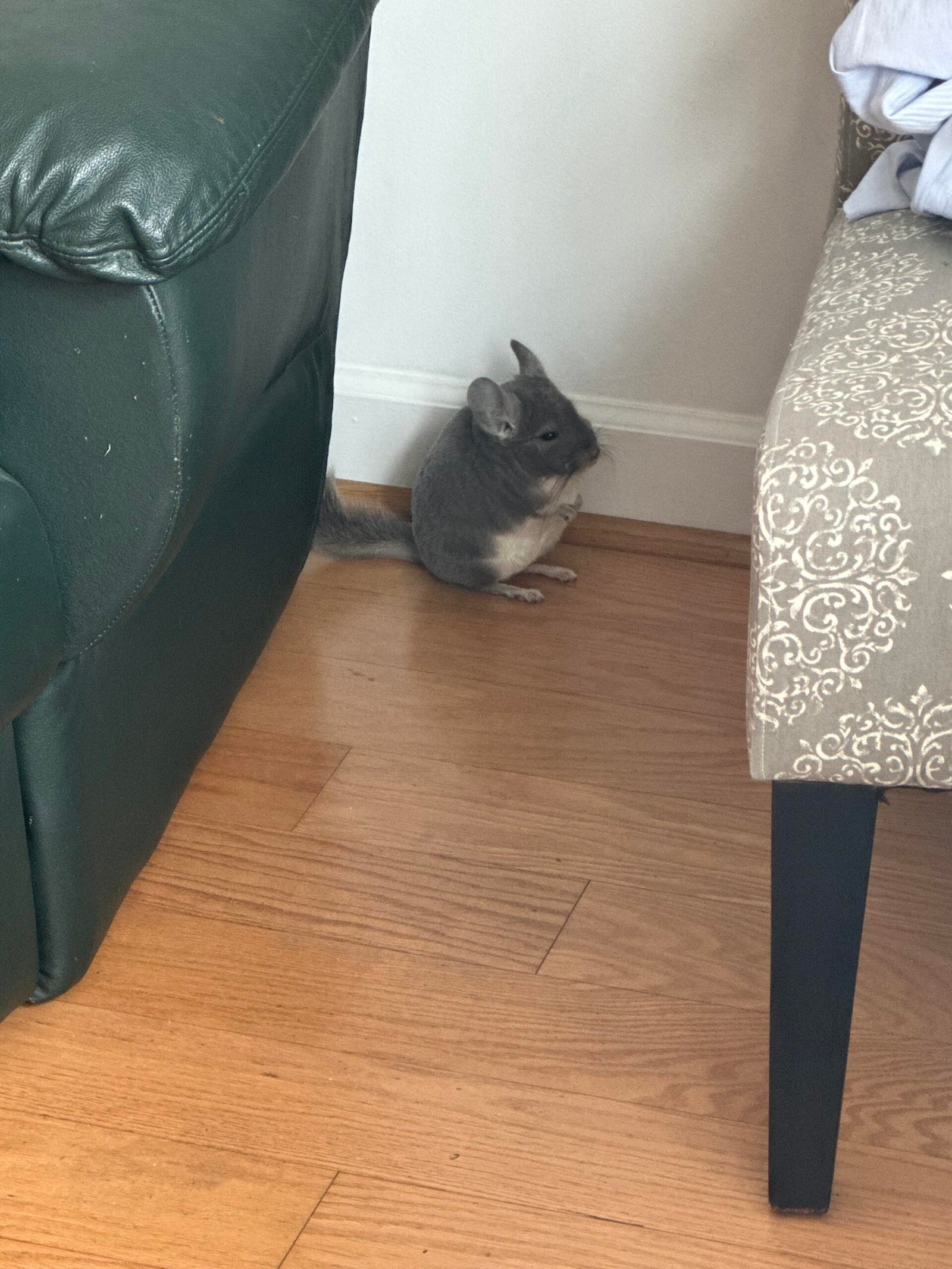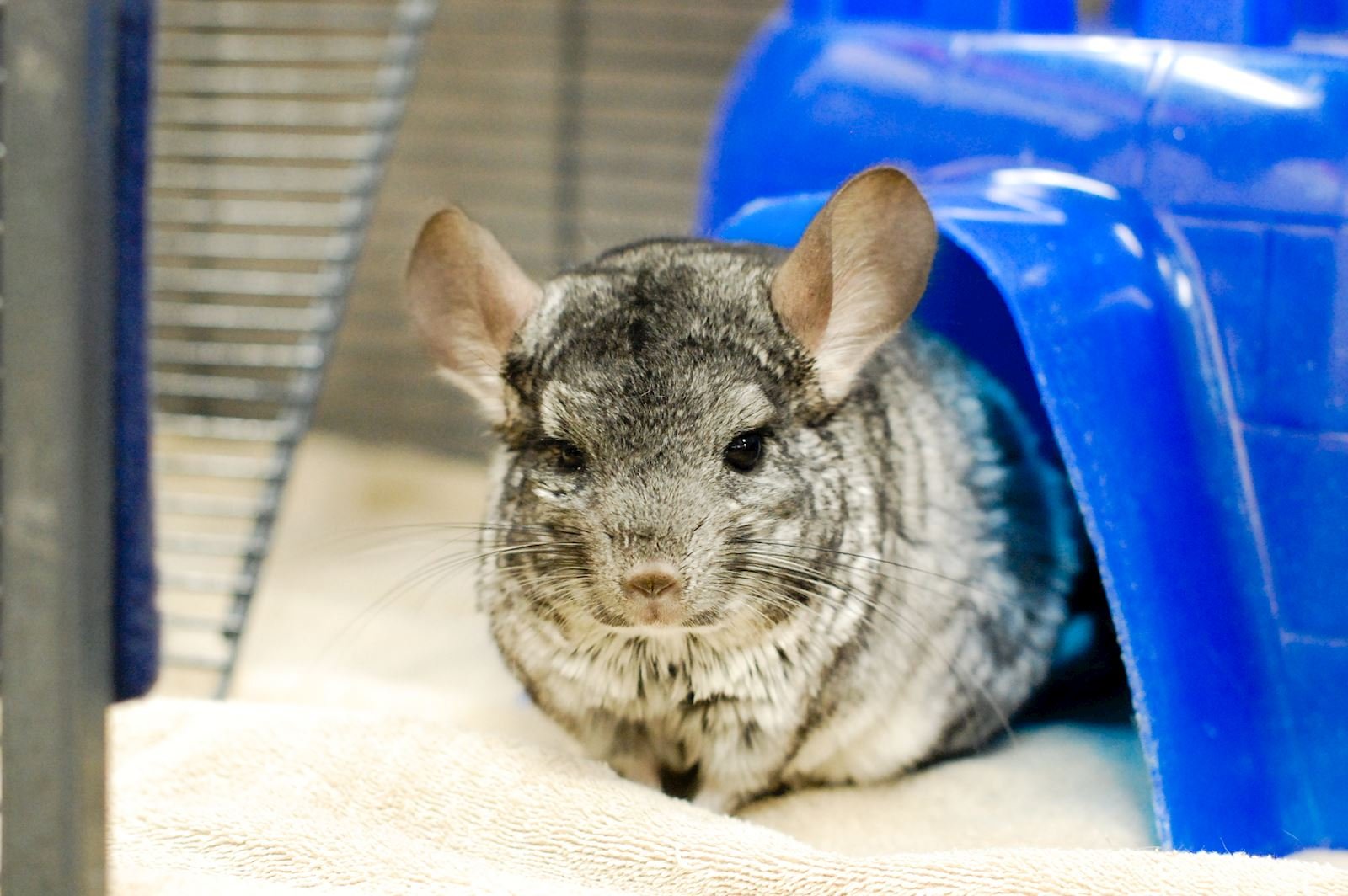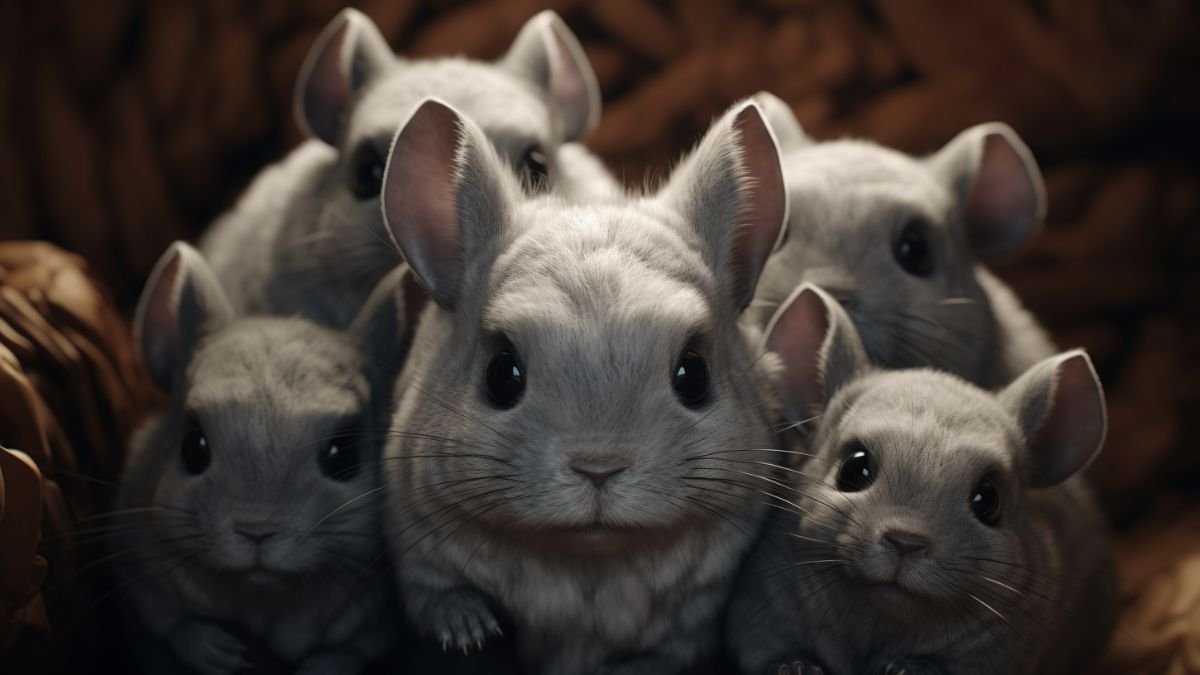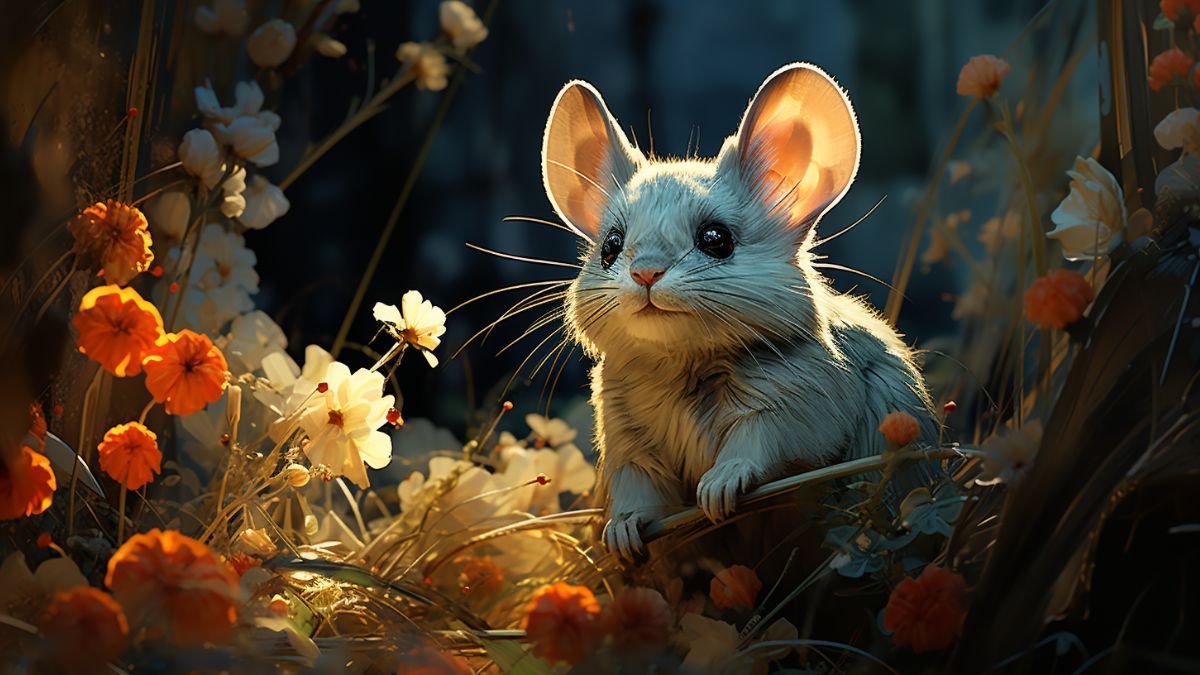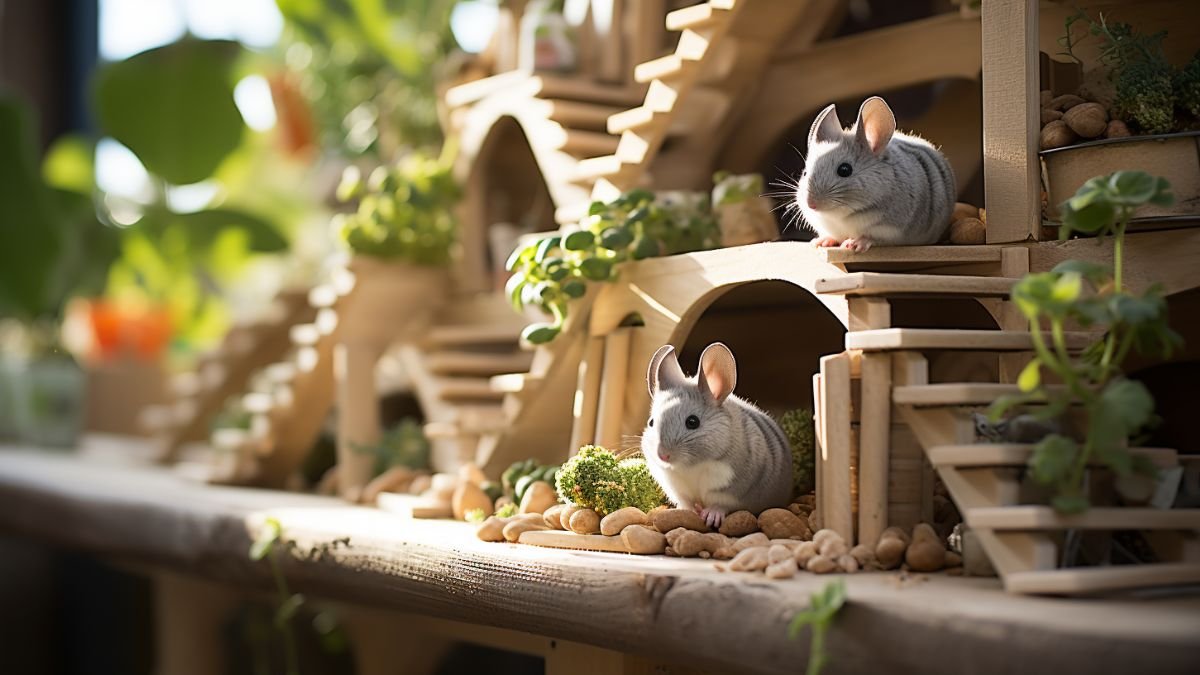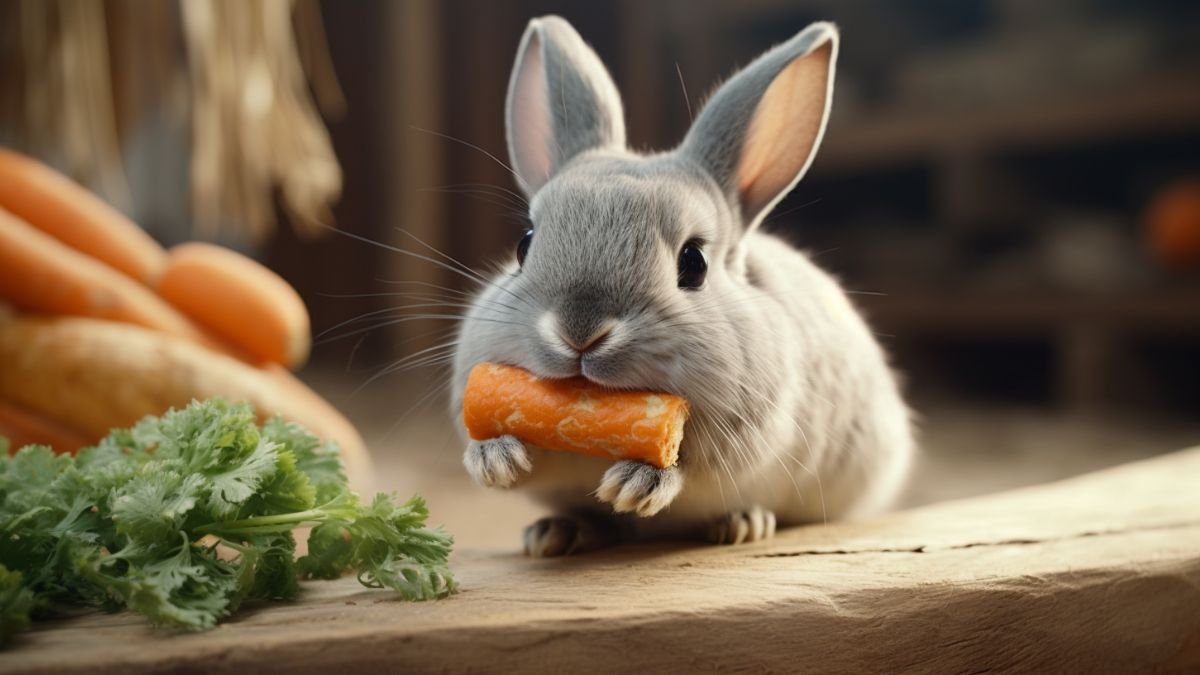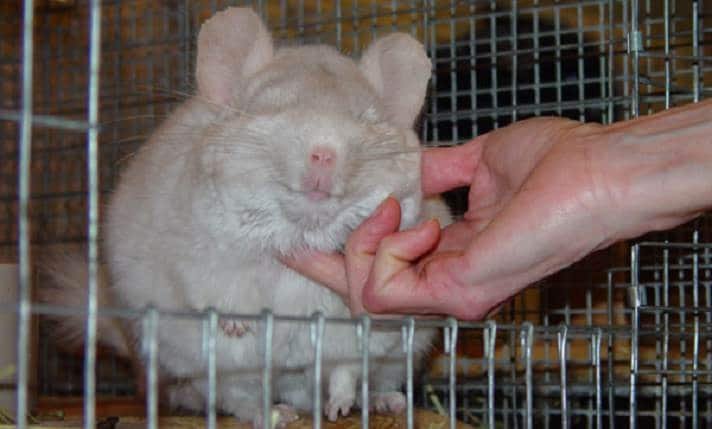
If your chinchilla has started biting, you might be feeling frustrated or worried. You want to enjoy your time with your furry friend without the fear of getting nipped.
The good news is, you can teach your chinchilla to stop biting gently and build a stronger bond. You’ll discover simple, effective ways to understand why your chinchilla bites and how to help it feel safe and calm. Keep reading to learn how to turn those little bites into gentle, loving interactions.
Why Chinchillas Bite
Chinchillas bite for several reasons. Understanding why they bite helps you handle them better. Biting is their way of communicating. It can show fear, pain, or frustration. Recognizing the cause stops biting gently and safely.
Common Triggers
Chinchillas bite when they feel scared or threatened. Loud noises or sudden movements startle them easily. They may bite if they are not used to being touched. Handling them roughly or too often can cause biting. New environments or strange smells also make them nervous.
Behavioral Reasons
Biting can be a habit if a chinchilla feels ignored. They use biting to get attention or express boredom. Sometimes, biting shows they want to be left alone. If they feel trapped, biting is their way to escape. Training and patience can reduce these behaviors over time.
Health-related Causes
Chinchillas bite when they are in pain or sick. Dental problems make chewing painful, causing them to bite. Skin irritation or injuries also lead to biting. Illnesses can make them grumpy and more likely to bite. Regular health checks help prevent biting from health issues.
Reading Chinchilla Body Language
Understanding chinchilla body language helps you stop biting gently. These small pets use their bodies to talk. Watching their movements and expressions shows how they feel. This knowledge prevents bites before they happen. You can keep your chinchilla happy and safe by reading signs.
Signs Of Stress
Chinchillas show stress by twitching their tails fast. They may freeze and stay very still. Their ears might lie flat against their heads. Sometimes they breathe quickly or make soft squeaks. Stress makes them nervous and more likely to bite.
Warning Signals
Look for warning signs like teeth chattering. This sound means they feel scared or annoyed. They may also nip the air near your hand. Their eyes might look wide and alert. These signals tell you to stop or slow down.
When They Feel Comfortable
Relaxed chinchillas sit calmly and blink slowly. They may groom themselves or gently explore your hand. Their ears stand up and their body stays loose. A calm chinchilla is less likely to bite. This is the best time to pet them softly.
Safe Handling Techniques
Safe handling techniques are key to preventing your chinchilla from biting. Gentle care builds trust and comfort. Using calm and careful methods helps your pet feel secure. This reduces stress and stops biting habits.
Approaching Your Chinchilla
Move slowly and speak softly near your chinchilla. Let it see your hand before touching. Avoid sudden moves that cause fear. Approach from the front, so your pet can see you clearly. This makes your chinchilla less likely to bite.
Proper Holding Methods
Support your chinchilla’s body with both hands. Hold it gently but firmly to prevent slipping. Avoid grabbing the tail or limbs. Keep your pet close to your chest for security. Proper holding makes your chinchilla feel safe and calm.
Avoiding Sudden Movements
Quick movements scare chinchillas and trigger biting. Move your hands slowly and steadily. Pause before picking up your pet. Stay calm and confident during handling. Gentle motions help your chinchilla stay relaxed and bite less.

Credit: rabbitwelfare.co.uk
Building Trust Gradually
Building trust with your chinchilla is the key to stopping gentle biting. Trust does not happen fast. It grows slowly over time. Patience and care are very important. Your chinchilla needs to feel safe and calm around you. The steps below help create a strong bond without fear.
Consistent Interaction
Spend time with your chinchilla every day. Short, regular sessions work best. Talk softly and move slowly near them. Let your chinchilla explore your hand at their own pace. This shows you are not a threat. Consistency makes your chinchilla more comfortable over time.
Positive Reinforcement
Reward good behavior with kind words or gentle petting. Praise your chinchilla when it stays calm. Avoid punishment or loud noises. These can cause fear and more biting. Gentle encouragement teaches your chinchilla to trust you. Positive moments build a friendly connection.
Using Treats Effectively
Offer small, healthy treats to your chinchilla. Hold the treat near your hand to invite them closer. Let them take it gently without rushing. Treats help your chinchilla link your presence to something nice. Use treats only as rewards, not bribes. This keeps trust strong and biting rare.
Creating A Comfortable Environment
Creating a comfortable environment is key to stop a chinchilla from biting gently. A calm and safe space helps your pet feel secure. When chinchillas feel safe, they are less likely to bite. This section explains how to set up their cage, reduce stress, and keep them busy.
Ideal Cage Setup
Choose a cage with enough space for your chinchilla to move. Multi-level cages work well. Use solid shelves to avoid injuries. Provide soft bedding, like fleece or paper-based materials. Keep the cage clean by removing waste daily. Place the cage in a quiet room away from loud noises. Avoid direct sunlight or drafts to keep the temperature steady.
Reducing Stress Factors
Chinchillas bite more when they feel scared or stressed. Keep loud noises and sudden movements away from their area. Avoid handling your chinchilla too much at first. Let them get used to your presence slowly. Keep a regular feeding schedule. Sudden changes in diet or environment can cause stress. Watch for signs of discomfort like fast breathing or hiding.
Providing Enrichment
Chinchillas need toys and activities to stay happy. Provide chew toys to keep their teeth healthy. Wooden blocks and pumice stones are good choices. Add tunnels or hideouts inside the cage. These give your pet places to explore and rest. Rotate toys often to keep your chinchilla interested. A happy chinchilla is less likely to bite.
Training To Reduce Biting
Training a chinchilla to stop biting takes time and care. It means teaching your pet gentle ways to behave. Consistent training helps your chinchilla feel safe and trust you more. This section shares easy methods to reduce biting using kind and calm steps.
Gentle Discipline Techniques
Use soft but firm words to say “no” when your chinchilla bites. Avoid yelling or hitting. These can scare your pet and make biting worse. Instead, gently pull away your hand and stop playing for a moment. This shows biting ends the fun. Repeat this often to teach your chinchilla biting is not okay.
Redirecting Biting Behavior
Give your chinchilla something safe to chew on. Toys made for chinchillas work well. When your pet tries to bite your fingers, offer a chew toy instead. This helps your chinchilla learn what is okay to bite. Keep toys nearby during playtime to prevent biting accidents.
Patience And Persistence
Training takes days, weeks, or longer. Be calm and patient with your chinchilla. Praise good behavior with soft words or gentle petting. Repeat training steps daily for best results. Over time, your chinchilla will bite less and trust you more. Stay consistent and kind throughout the process.
When To Seek Veterinary Advice
Knowing when to seek veterinary advice is important if your chinchilla bites gently. Sometimes biting shows more than just behavior. It can signal health or stress problems. Getting help early keeps your pet safe and happy.
Recognizing Health Issues
Chinchillas may bite when they feel pain. Check for signs like swelling or limping. Changes in eating or grooming habits matter too. These could mean illness or injury. A vet can find the cause and treat it quickly.
Behavioral Consultations
Sometimes biting comes from fear or stress. A vet or animal behaviorist can help. They offer advice on handling and care. They also suggest ways to reduce stress for your chinchilla. This support improves your pet’s mood and trust.
Emergency Situations
If your chinchilla bites hard or often, act fast. Severe biting might mean serious pain or fear. Sudden changes in behavior need urgent attention. Visit a vet immediately to avoid worsening health. Quick action can save your pet’s life.

Credit: smallpetselect.com

Credit: smallpetselect.com
Frequently Asked Questions
Why Does My Chinchilla Bite Gently?
Chinchillas bite gently to communicate discomfort or curiosity. It’s their way of exploring or setting boundaries. Understanding their body language helps prevent biting and builds trust.
How Can I Stop Gentle Biting In Chinchillas?
Avoid sudden movements and loud noises around your chinchilla. Handle them calmly and offer treats. Consistent gentle handling reduces biting by making them feel safe and secure.
Is Gentle Biting Normal Behavior For Chinchillas?
Yes, gentle biting is normal. It’s a mild warning or playful gesture. Proper training and patience help minimize this behavior over time.
What Are Safe Ways To Handle A Biting Chinchilla?
Approach slowly and speak softly. Use treats to distract and reward calm behavior. Avoid forcing interaction to prevent stress-induced biting.
Conclusion
Stopping a chinchilla from biting takes time and patience. Gentle handling helps build trust between you and your pet. Watch for signs when your chinchilla feels scared or stressed. Offer treats and soft words to encourage good behavior. Avoid sudden movements that might frighten your chinchilla.
Consistency matters; repeat calm actions every day. Soon, biting will reduce, and your chinchilla will feel safe. Enjoy a happy, gentle bond with your furry friend. Keep learning and caring to make your chinchilla’s life better.

